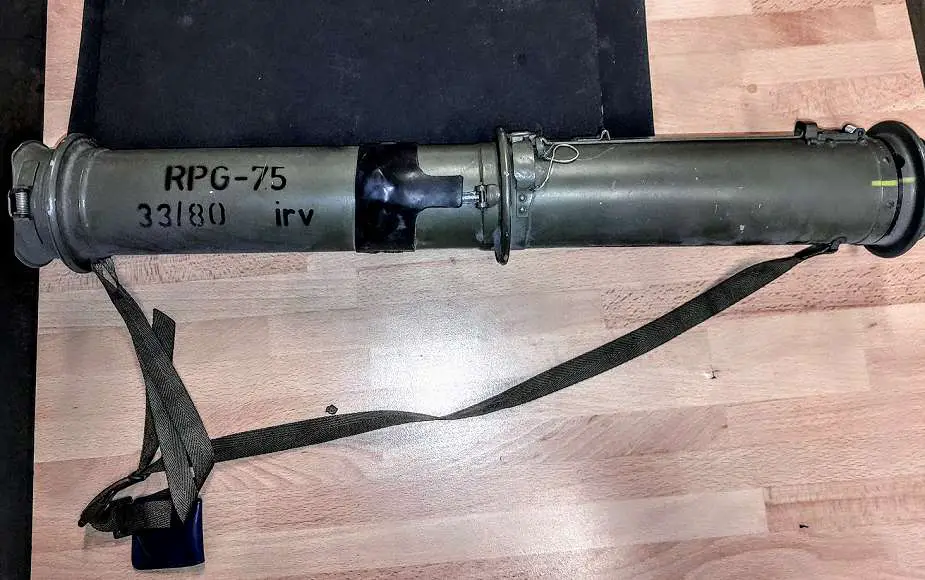Citing information released on X Social Network (Ex Twitter) on March 25, 2024, the Czech-based initiative "Gift for Putin" has made significant contributions to the Ukrainian Armed Forces amidst the ongoing conflict with Russia. Leveraging the power of social media for fundraising, the initiative has successfully delivered 1,000 RPG-75 anti-tank grenade launchers to the 41st mechanized brigade of the Ukrainian Armed Forces. This delivery, valued at approximately 1 million euros, was entirely funded by public donations, showcasing widespread public support for Ukraine's defense efforts.
Follow Army Recognition on Google News at this link

The RPG-75 is a Czech-made portable, disposable, single-shot anti-tank weapon, developed in the 1970s. (Picture source Wikimedia)
The RPG-75 anti-tank rocket launchers, known for their effectiveness against armored vehicles, represent a crucial addition to Ukraine's military capabilities in the face of Russian invasion. This support comes at a critical time as Ukraine continues to defend its sovereignty and territorial integrity against the Russian armed forces.
Building on this momentum, "Gift for Putin" has announced its next ambitious project: raising funds to acquire 10 tons of plastic explosives intended for Ukrainian FPV (First Person View) drones. This initiative underscores the evolving nature of warfare and the increasing reliance on unmanned systems and innovative technologies on the battlefield.
The use of social media platforms like X (formerly known as Twitter) for fundraising highlights the global dimension of the Ukrainian conflict. It demonstrates how digital technology can mobilize resources and support across borders, uniting people worldwide in common causes.
As the situation in Ukraine persists, the efforts of initiatives like "Gift for Putin" offer a glimpse into the power of collective action and the importance of international solidarity in times of conflict. The Czech initiative's ongoing fundraising endeavors not only provide tangible military support to Ukrainian forces but also send a strong message of resistance against aggression and support for democratic values.
The deployment of anti-tank weapons is crucial for Ukraine in its defense against Russian forces, particularly given the significant use of armored vehicles by Russia in the conflict. These armored assets, including tanks and armored personnel carriers, form the backbone of Russia's military strategy, designed to exploit their superiority in conventional warfare. By equipping Ukrainian forces with anti-tank weapons, it effectively neutralizes this advantage, allowing smaller, more mobile units the capability to confront and destroy much larger armored formations.
This dynamic shifts the balance of power on the battlefield, enabling Ukrainian forces to disrupt Russian operational plans and significantly slow their advances. It introduces a critical element of asymmetry to warfare, where the agility and tactical flexibility of anti-tank equipped units can offset the sheer size and strength of a conventionally superior adversary.
The RPG-75, a shoulder-launched rocket launcher, emerges as the Czech response to the Russian RPG-18 anti-tank rocket launcher, drawing inspiration from the American 66mm M72 portable anti-tank weapon among several other designs. This launcher is designed to fire a HEAT (High-Explosive Anti-Tank) warhead capable of penetrating approximately 300 mm of RHA (Rolled Homogeneous Armour). RHA refers to a type of steel armor plate used in military vehicles, known for its uniform hardness and resistance against projectiles. The RPG-75's penetration capability was considered effective against tanks of the Cold War era, though it falls short against the advanced armor of modern tanks. It boasts an effective range of up to 300 meters when targeting stationary objects and 200 meters for moving targets, offering a blend of precision and power within its operational scope.
Defense News March 2024















